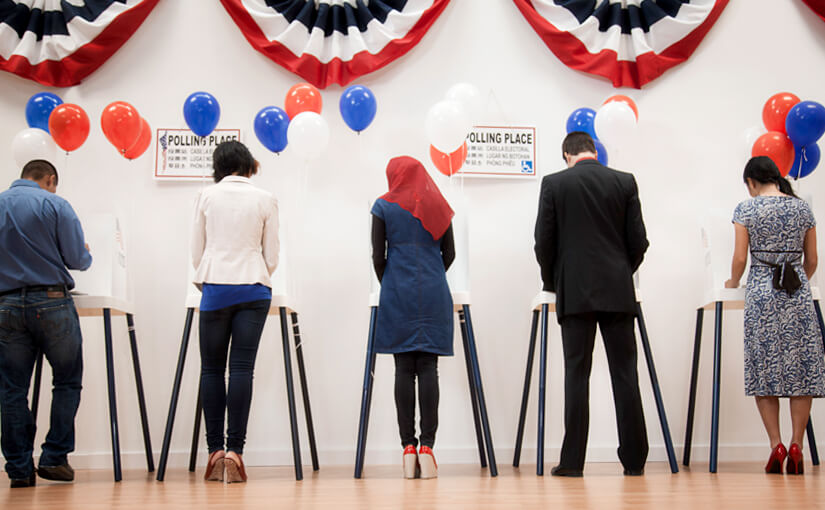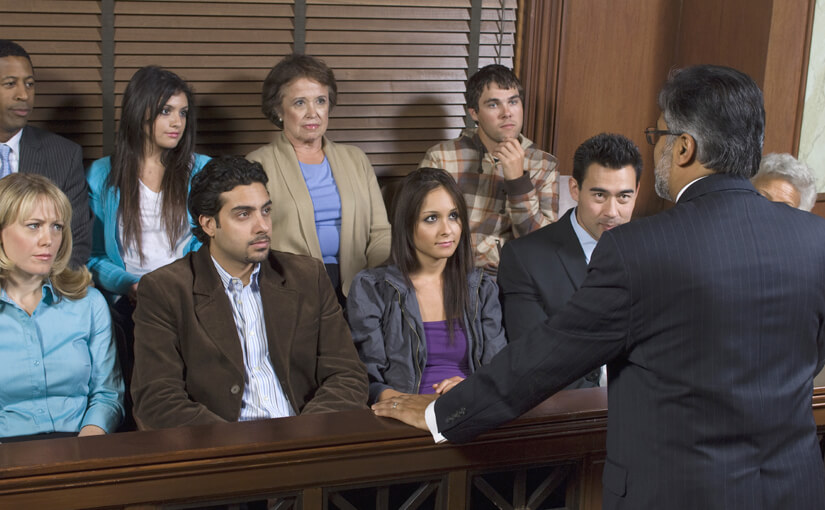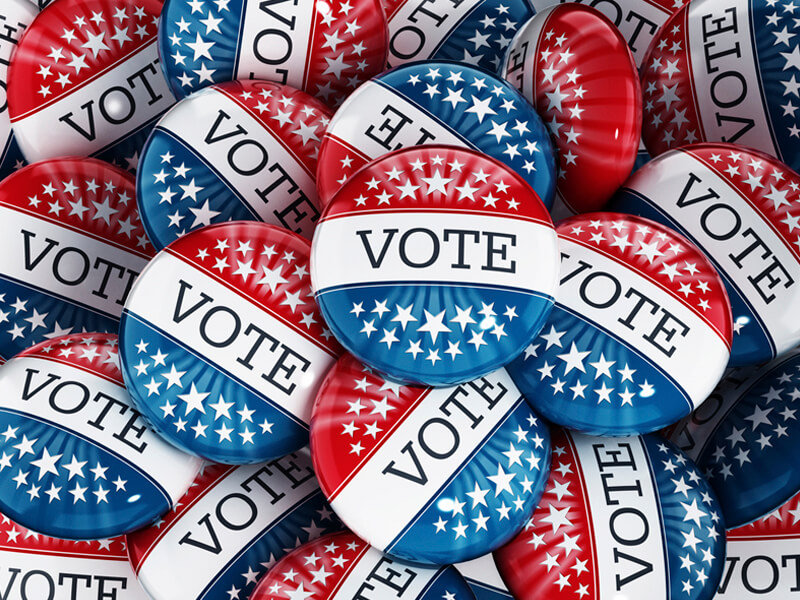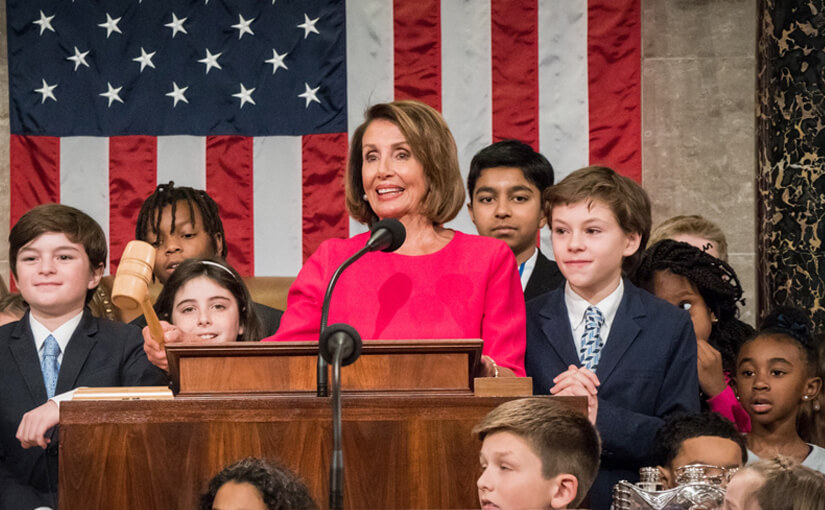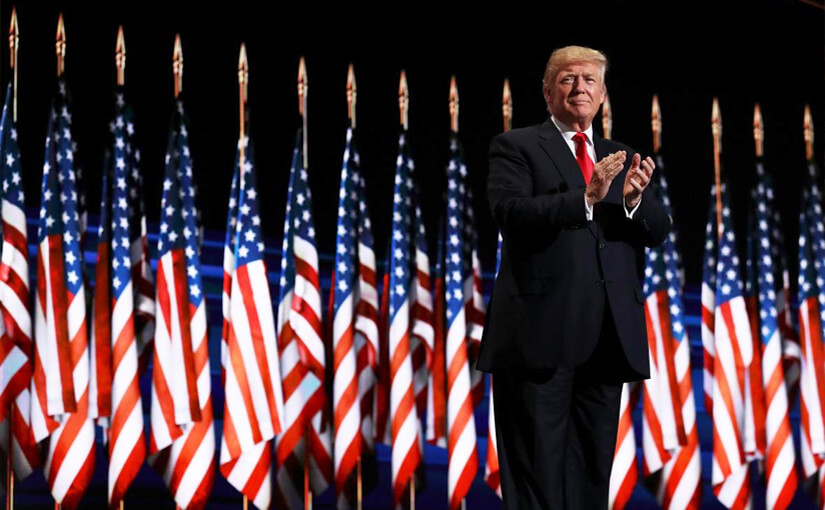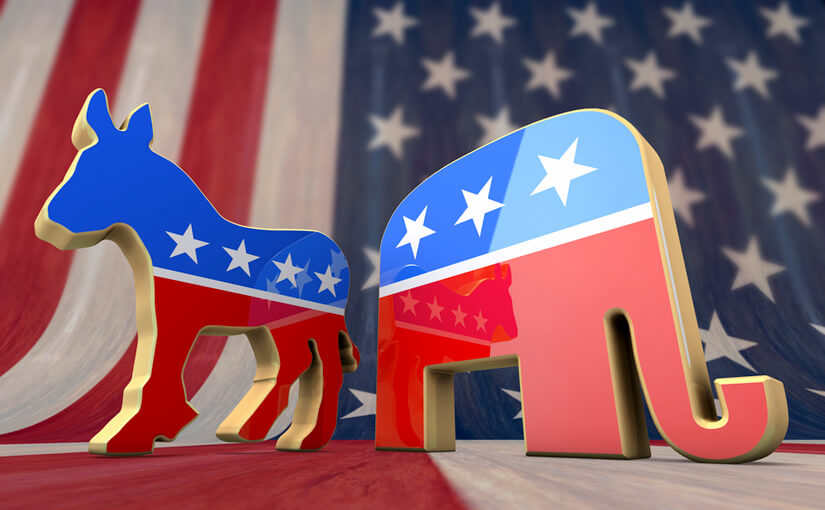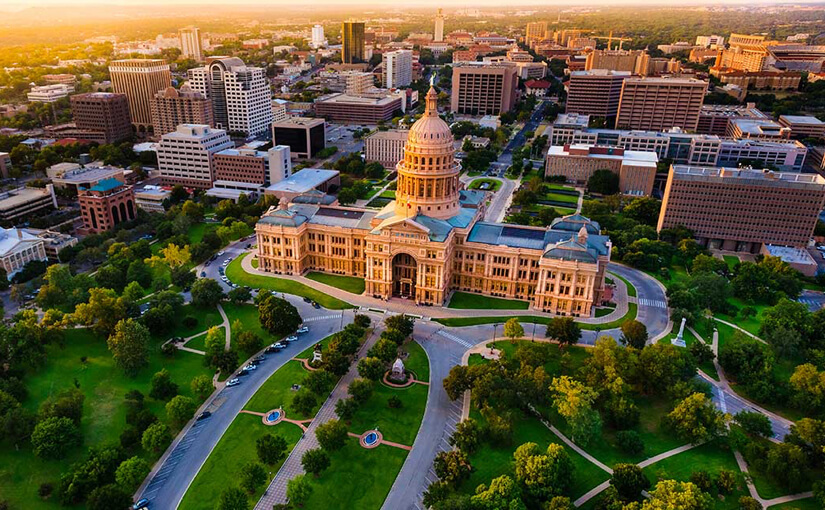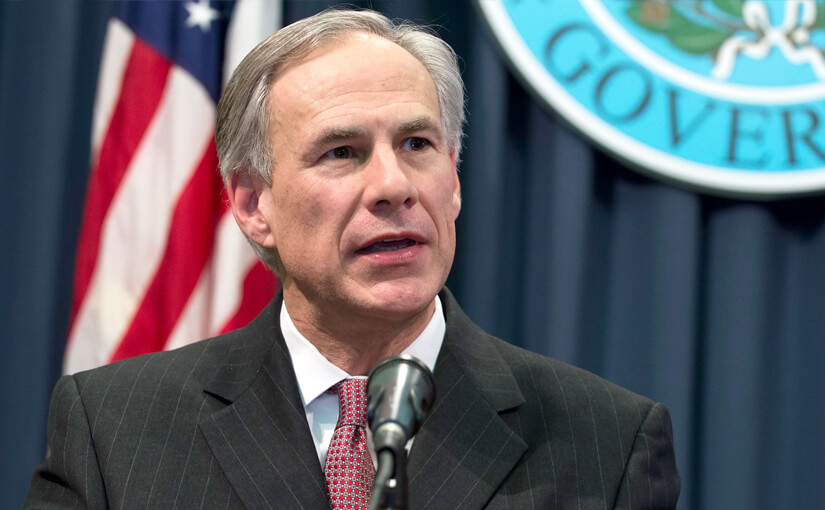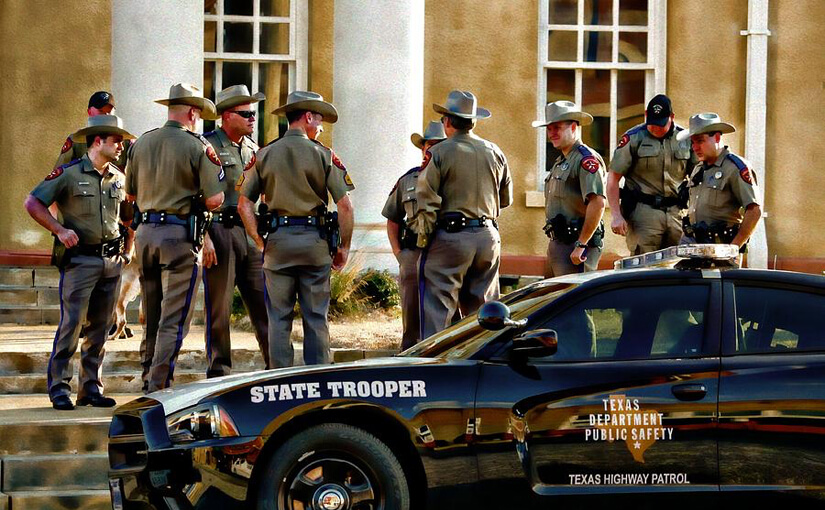-
- Vote in a federal election
- Run for federal office
U.S. citizens have the right to vote in federal elections. Permanent residents can vote in local or state elections that do not require voters to be U.S. citizens.
Only U.S. citizens can vote in federal elections.
U.S. citizens can also run for federal office. Qualifications to run for the Senate or House of Representatives include being a U.S. citizen for a certain number of years.
A candidate for Senate must be a U.S. citizen for at least 9 years. A candidate for the House must be a U.S. citizen for at least 7 years.
To run for president of the United States, a candidate must be a native-born (not naturalized) citizen. In addition to the benefits of citizenship,
U.S. citizens have certain responsibilities—to respect the law, stay informed on issues, participate in the democratic process, and pay their taxes.
** As you prepare for U.S. citizenship, Learn About the United States: Quick Civics Lessons will help you study for the civics and English portions of the naturalization interview. There are 100 civics (history and government) questions on the naturalization test. During your naturalization interview, you will be asked up to 10 questions from the list of 100 questions. You must answer correctly six (6) of the 10 questions to pass the civics test.
49. What is one responsibility that is only for United States citizens?*
- Serve on a jury
- Vote in a federal election
Two responsibilities of U.S. citizens are to serve on a jury and vote in federal elections. The Constitution gives citizens the right to a trial by a jury.
The jury is made up of U.S. citizens. Participation of citizens on a jury helps ensure a fair trial.
Another important responsibility of citizens is voting. The law does not require citizens to vote, but voting is a very important part of any democracy.
By voting, citizens are participating in the democratic process. Citizens vote for leaders to represent them and their ideas, and the leaders support the citizens’ interests.
* If you are 65 or older and have been a permanent resident of the United States for 20 or more years, you may study just the questions marked with an asterisk.
** As you prepare for U.S. citizenship, Learn About the United States: Quick Civics Lessons will help you study for the civics and English portions of the naturalization interview. There are 100 civics (history and government) questions on the naturalization test. During your naturalization interview, you will be asked up to 10 questions from the list of 100 questions. You must answer correctly six (6) of the 10 questions to pass the civics test.
48. There are four amendments to the Constitution about who can vote. Describe one of them.
- Citizens eighteen (18) and older (can vote).
- You don’t have to pay (a poll tax) to vote.
- Any citizen can vote. (Women and men can vote.)
- A male citizen of any race (can vote).
Voting is one of the most important civic responsibilities of citizens in the United States. In a democratic society, the people choose the leaders who will represent them. There are four amendments to the Constitution about voting.
The 15th Amendment permits American men of all races to vote. It was written after the Civil War and the end of slavery.
The 19th Amendment gave women the right to vote. It resulted from the women’s suffrage movement (the women’s rights movement).
After the 15th Amendment was passed, some leaders of the southern states were upset that African Americans could vote.
These leaders designed fees called poll taxes to stop them from voting. The 24th Amendment made these poll taxes illegal. The 26th Amendment lowered the voting age from 21 to 18.
** As you prepare for U.S. citizenship, Learn About the United States: Quick Civics Lessons will help you study for the civics and English portions of the naturalization interview. There are 100 civics (history and government) questions on the naturalization test. During your naturalization interview, you will be asked up to 10 questions from the list of 100 questions. You must answer correctly six (6) of the 10 questions to pass the civics test.
47. What is the name of the Speaker of the House of Representatives now?
- Nancy Pelosi
- (Nancy) Pelosi
The current speaker of the House of Representatives is Nancy Pelosi. For 31 years, Speaker Pelosi has represented San Francisco, California’s 12th District, in Congress. As speaker, she presides over the House of Representatives and leads the majority political party in the House, the Democratic Party. The speaker is second in line to the succession of the presidency after the vice president.
** As you prepare for U.S. citizenship, Learn About the United States: Quick Civics Lessons will help you study for the civics and English portions of the naturalization interview. There are 100 civics (history and government) questions on the naturalization test. During your naturalization interview, you will be asked up to 10 questions from the list of 100 questions. You must answer correctly six (6) of the 10 questions to pass the civics test.
46. What is the political party of the President now?
• Republican (Party)
The two major political parties in the United States today are the Democratic and Republican parties.
The current president, Donald Trump, is a member of the Republican Party.
Other notable Republican presidents include Abraham Lincoln, Theodore Roosevelt, Warren Harding, Herbert Hoover, Dwight Eisenhower, Ronald Reagan, George H. W. Bush, and George W. Bush.
Notable Democratic presidents include Woodrow Wilson, Franklin D. Roosevelt, Harry Truman, John F. Kennedy, Lyndon B. Johnson, Jimmy Carter, William “Bill” Clinton, and Barack Obama.
Since the middle of the 19th century, the symbol of the Republican Party has been the elephant. The Republican Party is also known as the “Grand Old Party” or the “GOP.” The symbol of the Democratic Party is the donkey.
** As you prepare for U.S. citizenship, Learn About the United States: Quick Civics Lessons will help you study for the civics and English portions of the naturalization interview. There are 100 civics (history and government) questions on the naturalization test. During your naturalization interview, you will be asked up to 10 questions from the list of 100 questions. You must answer correctly six (6) of the 10 questions to pass the civics test.
45. What are the two major political parties in the United States?*
- Democratic and Republican
The Constitution did not establish political parties. President George Washington specifically warned against them. But early in U.S. history, two political groups developed. They were the Democratic- Republicans and the Federalists.
Today, the two major political parties are the Democratic Party and the Republican Party. President Andrew Jackson created the Democratic Party from the Democratic- Republicans. The Republican Party took over from the Whigs as a major party in the 1860s.
The first Republican president was Abraham Lincoln. Throughout U.S. history, there have been other parties. These parties have included the Know-Nothing (also called American Party), Bull Moose (also called Progressive), Reform, and Green parties.
They have played various roles in American politics. Political party membership in the United States is voluntary. Parties are made up of people who organize to promote their candidates for election and to promote their views about public policies.
* If you are 65 or older and have been a permanent resident of the United States for 20 or more years, you may study just the questions marked with an asterisk.
** As you prepare for U.S. citizenship, Learn About the United States: Quick Civics Lessons will help you study for the civics and English portions of the naturalization interview. There are 100 civics (history and government) questions on the naturalization test. During your naturalization interview, you will be asked up to 10 questions from the list of 100 questions. You must answer correctly six (6) of the 10 questions to pass the civics test.
44. What is the capital of your state?*
- Answers will vary. [District of Columbia residents should answer that D.C. is not a state and does not have a capital. Residents of U.S. territories should name the capital of the territory.]
To learn the capital of your state or territory, go to http://bensguide.gpo.gov/3-5/state/index.html. Each state or territory has its own capital. The state capital is where the state government conducts its business.
It is similar to the nation’s capital, Washington, D.C., where the federal government conducts its business. Some state capitals have moved from one city to another over the years, but the state capitals have not changed since 1910. Usually, the governor lives in the state’s capital city.
* If you are 65 or older and have been a permanent resident of the United States for 20 or more years, you may study just the questions marked with an asterisk.
** As you prepare for U.S. citizenship, Learn About the United States: Quick Civics Lessons will help you study for the civics and English portions of the naturalization interview. There are 100 civics (history and government) questions on the naturalization test. During your naturalization interview, you will be asked up to 10 questions from the list of 100 questions. You must answer correctly six (6) of the 10 questions to pass the civics test.
43. Who is the Governor of your state now?
- Answers will vary. [District of Columbia residents should answer that D.C. does not have a Governor.]
To learn the name of the governor of your state or territory, go to www.nga.org/governors.
Similar to the federal government, most states have three branches of government. The branches are executive, legislative, and judicial. The governor is the chief executive of the state.
The governor’s job in a state government is similar to the president’s job in the federal government. However, the state laws that a governor carries out are different from the federal laws that the president carries out.
The Constitution says that certain issues are covered by federal, not state, laws. All other issues are covered by state laws. The governor’s duties and powers vary from state to state.
The number of years that a governor is elected to serve—called a “term”—is four years. The exceptions are New Hampshire and Vermont, where governors serve for two years.
** As you prepare for U.S. citizenship, Learn About the United States: Quick Civics Lessons will help you study for the civics and English portions of the naturalization interview. There are 100 civics (history and government) questions on the naturalization test. During your naturalization interview, you will be asked up to 10 questions from the list of 100 questions. You must answer correctly six (6) of the 10 questions to pass the civics test.
42. Under our Constitution, some powers belong to the states. What is one power of the states?
- Provide schooling and education
- Provide protection (police)
- Provide safety (fire departments)
- Give a driver’s license
- Approve zoning and land use
In the United States, the federal and state governments both hold power.
Before the Constitution, the 13 colonies governed themselves individually much like state governments. It was not until the Articles of Confederation and then the Constitution that a national or federal government was established.
Today, although each state has its own constitution, these state constitutions cannot conflict with the U.S. Constitution. The U.S. Constitution is the supreme law of the land.
The state governments hold powers not given to the federal government in the U.S. Constitution. Some powers of the state government are the power to create traffic regulations and marriage requirements, and to issue driver’s licenses.
The Constitution also provides a list of powers that the states do not have. For example, states cannot coin (create) money. The state and federal governments also share some powers, such as the ability to tax people.
** As you prepare for U.S. citizenship, Learn About the United States: Quick Civics Lessons will help you study for the civics and English portions of the naturalization interview. There are 100 civics (history and government) questions on the naturalization test. During your naturalization interview, you will be asked up to 10 questions from the list of 100 questions. You must answer correctly six (6) of the 10 questions to pass the civics test.
41. Under our Constitution, some powers belong to the federal government. What is one power of the federal government?
- To print money
- To declare war
- To create an army
- To make treaties
The powers of government are divided between the federal government and the state governments. The federal government is known as a limited government. Its powers are restricted to those described in the U.S. Constitution.
The Constitution gives the federal government the power to print money, declare war, create an army, and make treaties with other nations.
Most other powers that are not given to the federal government in the Constitution belong to the states.
** As you prepare for U.S. citizenship, Learn About the United States: Quick Civics Lessons will help you study for the civics and English portions of the naturalization interview. There are 100 civics (history and government) questions on the naturalization test. During your naturalization interview, you will be asked up to 10 questions from the list of 100 questions. You must answer correctly six (6) of the 10 questions to pass the civics test.


